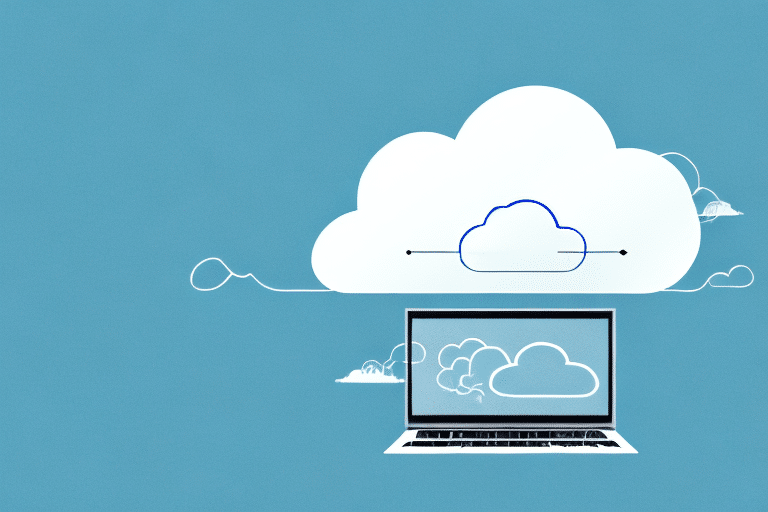Unlock the power of data science with Google Cloud Platform (GCP)! In today’s digital age, businesses rely heavily on data-driven insights to make informed decisions and drive growth. GCP offers a robust set of tools and services that enable data scientists to seamlessly navigate through the entire workflow, from exploration to production. Whether you’re just starting out or an experienced practitioner, GCP provides a dynamic environment for unleashing the true potential of your data. So buckle up and join us as we dive into the world of data science workflows on GCP!
What is Google Cloud Platform?
Google Cloud Platform (GCP) is a comprehensive suite of cloud computing services provided by Google. It offers a vast array of tools and resources for data storage, processing, analysis, and machine learning applications. GCP operates on the same infrastructure that powers popular Google products like Search and YouTube, ensuring reliability and scalability.
At its core, GCP provides a secure and flexible environment to build, deploy, and manage applications in the cloud. With its global network of data centers spread across different regions worldwide, GCP enables businesses to leverage high-performance computing power wherever they operate.
One of the key advantages of using GCP is its extensive set of managed services. From BigQuery for fast SQL queries on massive datasets to Dataflow for real-time stream processing, GCP offers an arsenal of powerful tools tailored specifically for data science workflows.
Additionally, GCP integrates seamlessly with other Google services such as TensorFlow for deep learning models and AutoML for automated machine learning tasks. This integration allows data scientists to leverage cutting-edge technologies within their workflows without any hassle.
Furthermore, GCP’s pricing model is designed to be cost-effective with options like pay-as-you-go billing and sustained usage discounts. This makes it an attractive choice for organizations looking to optimize their costs while benefiting from state-of-the-art infrastructure.
Google Cloud Platform provides a robust ecosystem that empowers data scientists with the necessary tools and resources to tackle complex data science workflows efficiently. Its scalability, flexibility,and integration capabilities make it a top choice among professionals in the field.
What are the data science workflows on GCP?
Data science workflows on Google Cloud Platform (GCP) enable data scientists to efficiently explore, analyze, and transform their data for various use cases. With GCP’s robust infrastructure and powerful tools, data scientists can seamlessly move from exploration to production with ease.
One of the key components of a data science workflow on GCP is data ingestion and storage. GCP provides services like BigQuery for storing large datasets and Pub/Sub for real-time streaming data. This allows data scientists to easily access and process their data using familiar SQL queries or custom code.
Once the data is ingested, the next step in the workflow is preprocessing and feature engineering. GCP offers tools like Dataflow, which allows for scalable batch or stream processing of large datasets. Additionally, AI Platform Pipelines provide a way to create reusable workflows that automate this preprocessing step.
After preprocessing, it’s time for model development and training. GCP offers AI Platform Notebooks which allow you to write code in popular languages like Python or R directly within your browser. You can also leverage AutoML capabilities if you prefer a more automated approach to model building.
Once the models are trained, they need to be deployed into production systems. GCP provides AI Platform Prediction. It allows you to deploy your models as RESTful APIs with high scalability and low latency. This makes it easy to integrate your models into existing applications or build new ones around them.
The data science workflows on GCP provide a seamless end-to-end experience for tackling complex machine learning problems at scale. From exploring raw datasets all the way through deploying predictive models into production systems – GCP has got you covered throughout every stage of your journey as a data scientist!
How to use the data science workflows on GCP?
Using data science workflows on Google Cloud Platform (GCP) is a powerful way to analyze and derive insights from large datasets. GCP offers a wide range of tools and services that can be leveraged for every step of the data science process.
To start, you can use BigQuery, GCP’s fully-managed data warehouse, to store and query your datasets. Its scalability and speed make it ideal for handling massive amounts of data. You can also integrate BigQuery with other GCP services like Cloud Storage or Dataflow to ingest and transform your data.
Once you have your data ready, you can utilize AI Platform Notebooks. It provides a collaborative environment for running Jupyter notebooks on GCP. This allows you to write code in Python or R, visualize your results using libraries like Matplotlib or Seaborn. You can also share your work with team members.
When it comes to model training and deployment, AI Platform provides managed services such as AutoML for automated machine learning tasks or TensorFlow Extended (TFX) for building end-to-end ML pipelines. These services take care of infrastructure management so that you can focus on developing models.
To monitor the performance of your models in production, Stackdriver Monitoring helps track key metrics while Stackdriver Logging enables central log management across different components of your workflow.
By utilizing the various tools available on GCP such as BigQuery, AI Platform Notebooks, AutoML, TFX,and Stackdriver Monitoring/Logging, you can streamline each step of the data science workflow – from exploration to production – making it easier than ever to gain valuable insights from complex datasets.
What are some of the benefits of using the data science workflows on GCP?
Benefits of using the data science workflows on GCP are numerous. GCP provides a highly scalable and flexible infrastructure. It allows data scientists to easily handle large datasets and perform complex computations without worrying about hardware limitations. This means faster processing times and more efficient analysis.
GCP offers a wide range of tools and services specifically designed for data science tasks. From powerful machine learning APIs like Cloud AutoML and TensorFlow to robust data storage options such as BigQuery, Google Cloud Platform has everything you need to build sophisticated models and extract valuable insights from your data.
Furthermore, GCP’s integrated environment enables seamless collaboration among team members. With features like version control, shared notebooks, and real-time collaboration capabilities in platforms like Cloud AI Platform Notebooks, it becomes easier for data scientists to work together on projects regardless of their geographic location.
Another advantage is the cost-effectiveness of using GCP for data science workflows. With its pay-as-you-go pricing model, you only pay for the resources you actually use. This can significantly reduce costs compared to maintaining an on-premises infrastructure or investing in expensive hardware.
GCP ensures high security standards with built-in encryption mechanisms and access controls. Data privacy is crucial in any organization dealing with sensitive information. Google takes this seriously by providing robust security measures at every level of the platform.
Conclusion
In this article, we have explored the various data science workflows available on Google Cloud Platform (GCP) and discussed how they can be used effectively. GCP provides a comprehensive set of tools and services that enable data scientists to seamlessly move from exploration to production.
With GCP’s extensive range of products such as BigQuery, Dataflow, and TensorFlow, data scientists can easily analyze large datasets, build robust machine learning models, and deploy them into production environments. The seamless integration between these tools allows for efficient collaboration between teams and accelerates the development lifecycle.
One of the key benefits of using data science workflows on GCP is scalability. With cloud-based resources readily available, data scientists can quickly scale up or down based on their project requirements. This flexibility ensures optimal resource utilization while keeping costs under control.
Furthermore, GCP offers advanced security features to protect sensitive data throughout the entire workflow process. From encryption at rest to access controls and auditing capabilities, organizations can trust that their valuable information is safeguarded.
Another advantage of using GCP is its ease of use. The intuitive user interface along with comprehensive documentation makes it easy for both beginners and experienced professionals to get started with data science workflows on the platform.
GCP’s strong ecosystem allows users to leverage pre-built models and APIs developed by Google experts. This saves time in model development while ensuring high-quality results backed by Google’s extensive research expertise.
In conclusion, Google Cloud Platform offers a robust infrastructure. It empowers data scientists with powerful tools for every step of their workflow journey – from exploration to production deployment. By harnessing the power of scalable resources, advanced security measures, ease-of-use features, and an extensive ecosystem, GCP enables organizations to unlock insights from their data efficiently and drive innovation in today’s fast-paced world.





